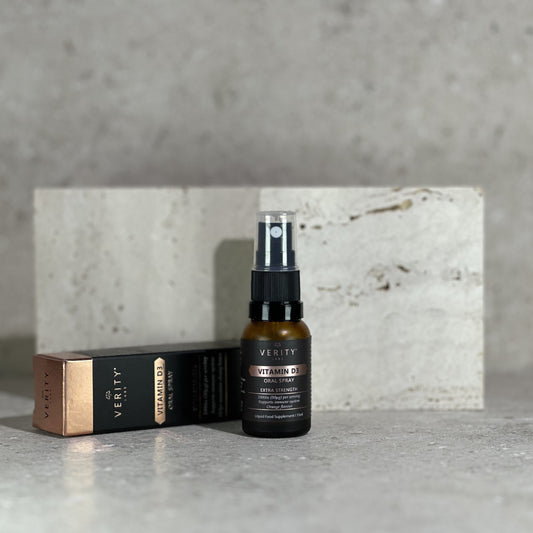A migraine is a neurological disorder characterised by recurring moderate to severe headaches that affect millions of people worldwide. It is often accompanied by other symptoms that can significantly impair daily functioning. Migraine episodes can last anywhere from a few hours to several days and may occur infrequently or multiple times a month.
The primary symptom of a migraine is an intense headache. The pain is typically pulsating or throbbing and can be exacerbated by physical activity. The location of the pain is often on one side of the head, although it can occasionally spread to both sides. Some individuals may experience a warning sign called an aura before the onset of a migraine, which can include visual disturbances such as seeing flashing lights, zigzag lines, or temporary vision loss.
In addition to the headache itself, migraines can manifest various other symptoms, such as:
Nausea and vomiting: Many migraine sufferers experience gastrointestinal disturbances during an episode, leading to feelings of nausea and, in some cases, vomiting.
Sensitivity to light (photophobia) and sound (phonophobia): Bright lights and loud noises can intensify migraine symptoms, causing discomfort and a desire for a quiet, dark environment.
Sensory sensitivity: Some individuals may become hypersensitive to certain sensory stimuli, such as strong smells (osmophobia) or touch (allodynia), during a migraine episode.
Fatigue and weakness: Migraines can leave individuals feeling drained, fatigued, and weak, which may persist even after the headache subsides.
Cognitive difficulties: Referred to as "brain fog," this symptom can involve difficulty concentrating, memory problems, and reduced overall cognitive function.
Migraines are often classified into two main categories: migraine without aura (previously known as common migraines) and migraine with aura (previously known as classic migraines). The aura phase can occur before or during the headache phase and typically lasts around 20 minutes to an hour. However, not all individuals with migraines experience an aura.
The exact causes of migraines are not fully understood, but they are believed to involve a combination of genetic and environmental factors. Changes in the brainstem and the trigeminal nerve, which is responsible for transmitting pain signals, may also play a role. Hormonal fluctuations, certain foods, sleep disturbances, stress, sensory stimuli, and environmental factors are known to trigger migraines in susceptible individuals.
Toxins and Liver Health
One potential factor associated with migraines is the presence of toxins in the body. Our liver plays a crucial role in detoxification by processing and eliminating harmful substances. When the liver becomes overloaded or inefficient, toxins can accumulate and potentially trigger migraines. Therefore, supporting liver health through proper detoxification measures becomes important in managing migraines.
Hydration and Dietary Changes
Maintaining adequate hydration is vital for overall health and can help prevent migraines. Dehydration can contribute to the onset of headaches, so it is essential to drink enough water throughout the day. Additionally, making dietary changes can have a significant impact on migraine frequency and intensity. Some common triggers include caffeine, alcohol, processed foods, artificial sweeteners, and certain food additives. Identifying and eliminating these triggers from the diet can help prevent migraines.
Hormonal Changes
Fluctuations in hormone levels, especially during menstrual cycles in women, can be a significant factor in the onset of migraines. This is commonly referred to as hormonal migraines. Changes in estrogen levels, which occur before or during menstruation, pregnancy, and menopause, can influence the frequency and intensity of migraines in susceptible individuals. Besides menstrual cycles, other hormonal changes, such as those associated with puberty or hormone replacement therapy, can influence migraines.
Migraine Triggers and Prevention Strategies
Migraine triggers vary from person to person, and identifying individual triggers is crucial in preventing episodes. Common triggers include stress, certain foods, lack of sleep, strong odours, certain medications and environmental factors. Here are some strategies to prevent migraines:
Maintain a Regular Sleep Pattern - Establishing a consistent sleep routine, ensuring sufficient rest, and managing stress levels can reduce the likelihood of migraines.
Identify and Avoid Triggers - Keep a migraine diary to track episodes and identify potential triggers. Once identified, make necessary lifestyle adjustments to avoid or minimise exposure to these triggers.
Stress Management - Engage in stress-reducing practices such as meditation, deep breathing exercises, yoga, or regular exercise. These activities can help manage stress levels and reduce the occurrence of migraines.
Regular Exercise - Regular physical activity promotes overall well-being and can reduce the frequency and severity of migraines. Aim for at least 30 minutes of moderate exercise most days of the week.
Genetics and Migraines
Genetics also play a role in determining who is most at risk of developing migraines. If you have a family history of migraines, your likelihood of experiencing them is higher. However, it is important to note that genetics are not the sole determining factor, and lifestyle and environmental factors also contribute significantly.
Treatment Options
While prevention is key, various treatment options are available for managing migraines. These include over-the-counter pain medications, prescription medications specifically designed to treat migraines, and alternative therapies like acupuncture, massage, and biofeedback. Consultation with a healthcare professional is recommended to determine the most appropriate treatment plan based on individual circumstances.
In addition, some natural methods can play a significant role in easing migraines and preventing their occurrence. Here are some strategies and supplements that have shown promise in managing migraines:
- Magnesium: This mineral is involved in various processes in the body, including the regulation of nerve function and blood vessels. Research suggests that magnesium supplementation may help reduce the frequency and intensity of migraines. Foods rich in magnesium include spinach, almonds, avocados, and dark chocolate. If considering magnesium supplements, consult with a healthcare professional for appropriate dosage and guidance.
- Coenzyme Q10 (CoQ10): CoQ10 is an antioxidant that supports energy production in cells. Studies have indicated that CoQ10 supplementation may reduce the frequency and severity of migraines. It is found naturally in organ meats, fatty fish, and whole grains. Supplementation should be discussed with a healthcare professional.
- Riboflavin (Vitamin B2): Riboflavin, or vitamin B2, has been found to have a preventive effect on migraines. It can be obtained from dietary sources such as milk, eggs, lean meats, leafy greens, and fortified cereals. Supplements may be recommended in higher doses, but consultation with a healthcare professional is advised.
- Feverfew: Feverfew is an herb with anti-inflammatory properties that has long been used in traditional medicine to manage migraines. Some research suggests that it may help reduce the frequency and severity of migraines. Feverfew is available in supplement form, but it is important to consult with a healthcare professional for appropriate dosage and potential interactions.
- Omega-3 Fatty Acids: Omega-3 fatty acids, found in fatty fish like salmon and sardines, have anti-inflammatory properties that may help in managing migraines. If dietary intake is inadequate, omega-3 supplements can be considered, but consult with a healthcare professional for guidance.
- N-acetylcysteine (NAC): NAC is an antioxidant and a precursor to glutathione, a powerful antioxidant produced by the body. Some studies suggest that NAC may have a positive impact on migraine management due to its antioxidant properties which may help reduce oxidative stress, inflammation and support liver.
Migraines are complex neurological conditions that can significantly impact an individual's daily life. While the exact cause of migraines remains elusive, adopting preventive measures such as detoxifying the body, staying hydrated, making dietary changes, and identifying triggers can help manage and potentially reduce the frequency of migraines. Additionally, understanding the role of genetics in migraine risk can provide valuable insights. Remember, consulting with a healthcare professional is essential for proper diagnosis, treatment, and personalised management of migraines.
References:
https://www.sciencedirect.com/science/article/pii/S0753332221003425
https://www.sciencedirect.com/science/article/abs/pii/S1474442217304350
https://www.ncbi.nlm.nih.gov/pmc/articles/PMC4640499/
https://pubmed.ncbi.nlm.nih.gov/16362711/
https://www.ncbi.nlm.nih.gov/pmc/articles/PMC3210009/
https://pubmed.ncbi.nlm.nih.gov/27670440/
https://pubmed.ncbi.nlm.nih.gov/33779525/
https://www.ncbi.nlm.nih.gov/pmc/articles/PMC5937007/
https://www.ncbi.nlm.nih.gov/pmc/articles/PMC6559232/
https://thejournalofheadacheandpain.biomedcentral.com/articles/10.1186/s10194-021-01369-6
https://hpmaine.com/images/PDFs/Migraine-Triggers-and-Oxidative-Stress-Borkum-2016.pdf
https://headachejournal.onlinelibrary.wiley.com/doi/abs/10.1111/head.12468
















